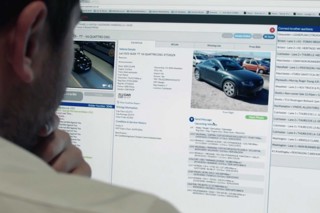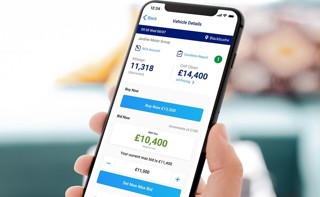Sales in the used car retail sector showed signs of “cooling off” according to a market report which revealed declining in activity during August – with retail sales down 3.3% year-on-year.
Market analysis compiled by Indicata showed that last month – crucially, the first before the key numberplate change month of September for UK traders – the UK was the only one of 13 European countries to see declines in sales in the sub-three-year sector.
Limited supplies triggered by the three-month COVID-19 lockdown period, from March 23 to June 1, may have been partially to blame for a reduction of 15.75% in the age range.
Volumes were also down by 50% in the sub 12-month sector caused by OEMs reducing their push on self-registrations and demonstrators as new car shortages continue following the COVID-19 pandemic lockdown, Indicata said.
The six-nine-year age group was the only one to rise during August by 8.8%.
“The UK used car market saw an interesting blend of high prices, improving stock levels and a fall in demand year-on-year. Based on these trends, September could be more of a challenging used car month for dealers,” said Indicata group sales director, Jon Mitchell.
“Dealers must invest in identifying the fast-moving stock and trade out of the slow-moving stock quickly.”
According to Indicata’s used car market data, the used hybrid and EV sales were up year-on-year by nearly 50% in August, reflecting the consumers’ move to low emission used cars post lockdown.
Otherwise, the luxury and SUV segments were the only ones to experience annual growth in August.
Retail prices rose by 1.9% last month, according to Indicata, which reflects the very high wholesale prices in the market.
Earlier this week BCA reported that the average price of vehicle sold at its UK auctions had continued a marginal decline, however.
Indicata said that market stock levels grew by 3% in August, stating that “used cars stuck in the wholesale supply chain have finally seen the light of day”.
In June Cap HPI head of valuation, Derren Martin, indicated to AM that he feared a similar “market correction” to that seen in May last year as vehicle supplies and stock levels began to rise again in September/October and consumer confidence suffered a blow as the Government’s coronavirus job retention scheme (CJRS) wound down.
Earlier this month Cap HPI stated that car values showed little sign of an impending “market correction” as prices rose by an average of 0.2% across the sector during August, however.


















Login to comment
Comments
No comments have been made yet.